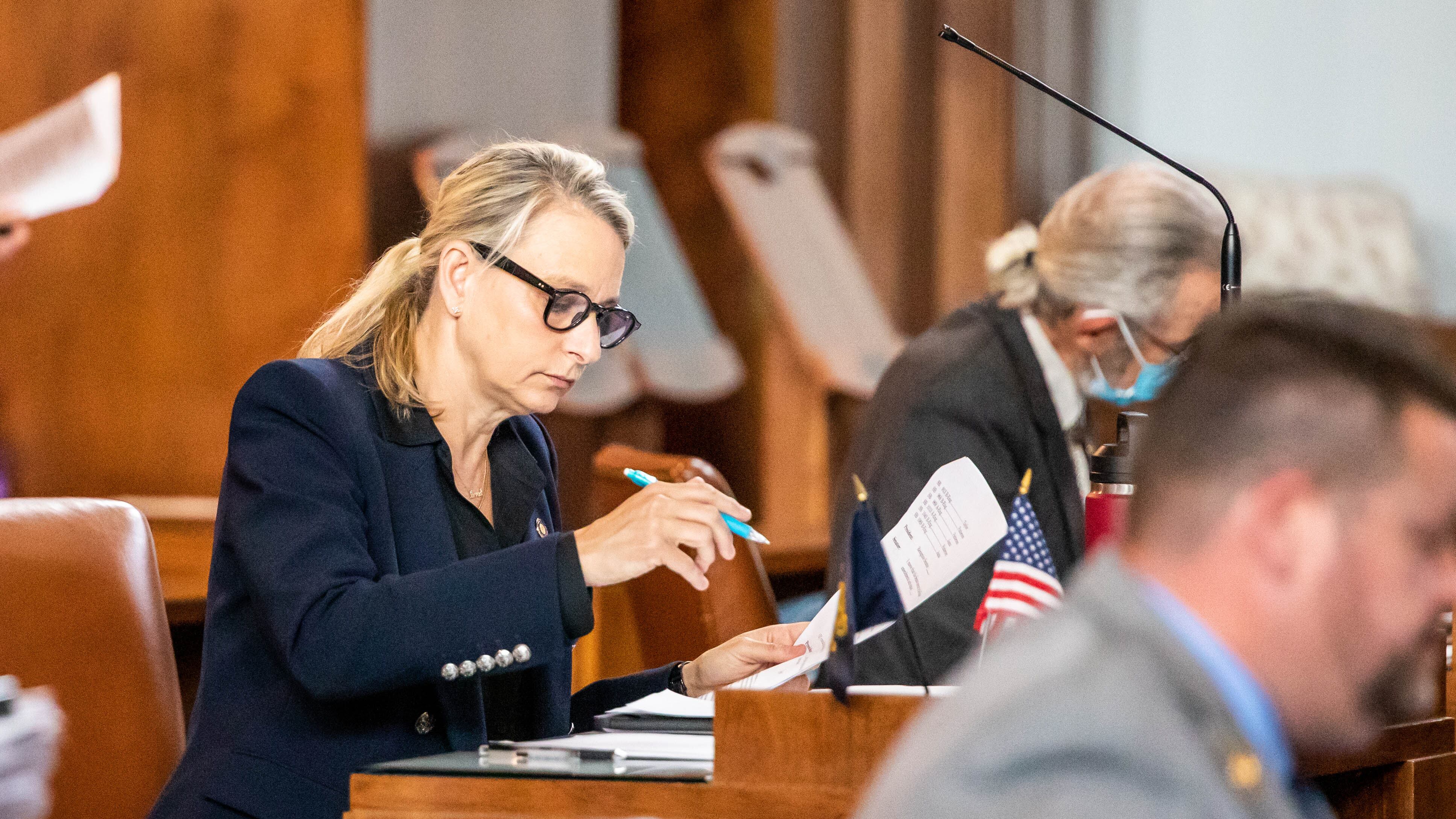The Oregon Legislature is between sessions and won’t meet in earnest until early February. But you’d never know that by the deluge of public comment Oregonians submitted for a Monday morning meeting of the Joint Interim Committee on Addiction and Community Safety Response.
The context for the hearing was the rising public concern about Measure 110, the initiative voters approved in 2020 that decriminalized the possession of most illicit drugs for personal consumption and diverts most of the money raised through the tax on recreational cannabis to treatment programs for substance use disorder.
Critics of Measure 110 have filed ballot initiatives that could allow voters to overturn it in 2024, although in the meantime that threat is mostly a way to force lawmakers to consider ways to mitigate the harm Measure 110 has caused—hence today’s hearing. The co-chairs of the committee, state Sen. Kate Lieber (D-Portland) and Rep. Jason Kropf (D-Bend), both former prosecutors, are using the interim to gather information for a bill aimed at making changes to Measure 110 in next year’s short session.
Today, the committee only heard testimony from invited speakers, including Dr. Todd Korthuis, head of the addiction medicine section at Oregon Health & Science University. Korthuis’ fact-filled presentation provided useful background on the current crisis and the evolution of fentanyl’s role in Oregon’s illicit drug market.
In addition, more than 220 people submitted written testimony to the committee. Much of it is thoughtful and worth reading by clicking through the link here.
Much of the testimony took one of two directions: Some people encouraged lawmakers to give Measure 110 more time to work. (As WW and other media have reported, implementation of the measure’s decriminalization of possession of most illicit drugs preceded new treatment options by a couple of years.)
Representative of that sentiment: testimony by S. Amanda Marshall, a former U.S. attorney for Oregon, now in private practice.
“Both my academic knowledge and lived experience have convinced me beyond any doubt that we cannot arrest our way out of this crisis. Locking people up has never been a solution to a public health crisis, and fentanyl doesn’t change that fact,” Marshall said in her testimony. “We need to do what we KNOW works and provide the housing, treatment, prevention outreach, harm reduction services, education, job training, and health care that people need and voters have overwhelmingly supported.”
But many of the people who testified said the overdose crisis and unchecked open drug consumption demand an immediate course correction that could include the recriminalization of public drug use. About 20 business associations, led by Oregon Business & Industry, laid out their concerns in joint testimony.
“Businesses have had to bear the cost of cleanup and repair, private security patrols and equipment, employee safety and training, stolen or damaged products, and the loss of foot traffic,” the business groups said. “While Ballot Measure 110 alone has not led to these problems, it has exacerbated them. Investments in law enforcement, changes to and enforcement of drug laws, tools to offset extraordinary costs to businesses, and a holistic system to address addiction are all part of the equation.”
“Oregonians are frustrated and worried; I’m frustrated and worried about the drug crisis, but I have hope because we all want solutions that will make a real, immediate impact,” Lieber said. “We need to act fast to clean up trash, graffiti, and drug paraphernalia; reduce public disorder, public use, and criminal activity; get people off the streets and into treatment; and do everything we possibly can to prevent addiction.”
House Minority Leader Jeff Helfrich (R-Hood River) took a more combative stance.
“Today, we heard more of the same from radical special interests who benefit from the status quo,” Helfrich, a retired Portland cop, said after the hearing. “We also heard heartbreaking stories from people living with the consequences of Measure 110′s failure, and they are begging for change. The majority party only wants to talk; Republicans want action. Our caucus has put forward ideas to get addiction, homelessness, and crime under control, and we urge the majority to work with us to implement these solutions in the next session.”

